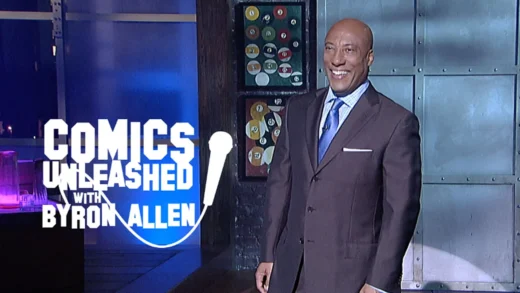Experts are eager for Muslim characters to be portrayed in ways that have nothing to do with terrorism — and in more progressive storylines than on this week’s episode of “Roseanne.”
Tuesday’s episode centers on Roseanne Barr’s character spouting irrational fears that her new Muslim neighbors are terrorists, until she actually meets them and realizes they’re good people.
The show aims to shoot down nasty stereotypes about Muslims by teaching the character a lesson about her ignorance, but Muniba Saleem, an assistant professor at the University of Michigan’s Dept. of Communication Studies, sees a better way to change the way Muslim characters are depicted.
“It’s high time that we represent Muslims in different storylines with different themes beyond terrorism,” says Saleem, whose focus is on how representations in media impact people’s attitudes.
“Even if it is just kind of making a point and even if it’s doing it in a way that’s correcting that impression, what I’m really more wanting is more diversity of how they’re represented and more attributions,” she explained. “Maybe represent a Muslim person who has nothing to do with terrorism, like just baking cookies or something. Something like that probably is really what’s needed.”
Saleem says it’s likely too early to tell how the episode impacted viewers and their thoughts on prejudice against Muslims. But she notes that the 1970s sitcom “All in the Family” was not successful in its attempt to defuse racial biases in society through its bigoted character of Archie Bunker.
Bunker was frequently told by the other characters that his bigoted behavior was unacceptable, yet Saleem says research shows some people who were prejudiced going in essentially had their viewpoints reinforced by Bunker, despite the show’s positive intentions.
“It’s possible that whatever ‘Roseanne’ is doing … is going to heavily depend on where people are initially on their level of prejudice against Muslims,” Saleem says. “Maybe people who are already high on it are sadly going to get reinforced by whatever the show is spouting in terms of negative sentiments. But people who are low on those prejudicial beliefs probably will be like, ‘Oh yeah, this is a great thing because they’re bringing into light some of the biases that our society has.'”
Tuesday’s episode of “Roseanne” began with Barr’s character, Roseanne Conner, expressing fear that her neighbors were using a large pile of fertilizer outside their home to build a bomb.
“This is what people from Iraq and Taliban-istan do,” she says on the show. “They hide out in neighborhoods like Lanford. Don’t you watch the news?”
Roseanne continues to make ignorant and stereotypical remarks for much of the episode. When they’re trying to guess their neighbors’ Wi-Fi password, for example, she suggests they try “Death to America.”
Roseanne ultimately meets the neighbors, Fatima and Samir, when she goes to ask for their Wi-Fi password. The internet at Roseanne’s home had been cut off after they missed a payment, and she needed Wi-Fi so her granddaughter could Skype her mother, who is serving the U.S. military in Afghanistan.
Roseanne quickly learns her neighbors, who are from Yemen, have been subjected to hurtful diatribe from others since they moved to town. Their young son is so frightened by the hatred that he sleeps with a bulletproof vest on.
Samir deducts that Roseanne is scared of them, to which he responds, “We’re scared of you.” They eventually share the password, which is “Go Cubs.”
Roseanne later runs into Fatima at a grocery store and helps her pay for her food after the cashier tells her pre-prepared food like rotisserie chicken is not covered by food stamps, and that her EBT card is $30 short. The cashier tells Roseanne, “Maybe you can help her carry the groceries out to her camel too,” prompting Roseanne to tell her off after Fatima leaves.
(Excerpt) Read More in: NY Daily News




